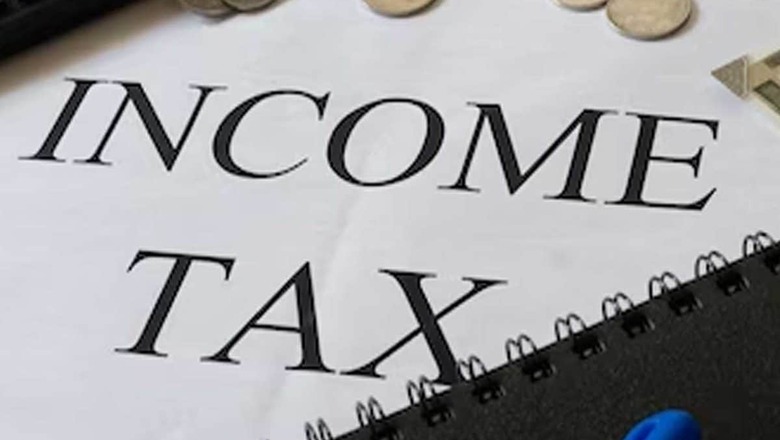
views
Income Tax FY 2022-23: In India, advance tax refers to the tax that is paid by individuals, companies, and businesses in advance, rather than waiting to pay it all in a lump sum at the end of the financial year. Under the advance tax system, taxpayers are required to estimate their income for the financial year and calculate the tax liability accordingly. Based on this estimation, they are required to make payments of tax in instalments on specified due dates. These due dates are generally spread over the financial year and are set by the Income Tax Department.
Also Read: Effortless ITR Filing: A Step-by-Step Guide To Register On Income Tax Portal
Who Is Liable To Pay Advance Tax?
As per section 208, every person whose estimated tax liability for the year is Rs 10,000 or more, shall pay his tax in advance, in the form of ‘Advance Tax’.
In other words, if the estimated tax liability of the taxpayer is Rs. 10,000 or more, then they have to discharge tax liability in the form of advance tax, to be paid in different instalments.
The following taxpayers are required to pay advance tax:
- Salaried employees
- Self-employed individuals
- Businesses
- Trusts
- Partnerships
For salaried individuals, advance tax is mostly taken care of through TDS by employers. But other forms of income such as interest on savings bank accounts, fixed deposits, rental income, bonds, or capital gains increase the tax liability. One’s tax liability needs to be estimated beforehand.
How is Advance Tax Calculated And Paid?
Advance tax is calculated as given below:
a) In case of all assessees (other than the eligible assessees as referred to in section 44AD and 44ADA of the Income Tax Act):
- At least to 15% On or before June 15
- At least to 45% On or before September 15
- At least to 75% On or before December 15
- 100% On or before March 15
b) In case of eligible assessee as referred to in section 44AD and 44ADA: 100% On or before March 15.
The presumptive taxation scheme of section 44AD is designed to give relief to small taxpayers engaged in any business (except the business of plying, hiring or leasing of goods carriages referred to in section 44AE).
The presumptive taxation scheme of section 44AD can be adopted by following persons :
1) Resident Individual
2) Resident Hindu Undivided Family
3) Resident Partnership Firm (not Limited Liability Partnership Firm)
A person resident in India engaged in following professions can take advantage of section 44ADA:-
1) Legal
2) Medical
3) Engineering or architectural
4) Accountancy
5) Technical consultancy
6) Interior decoration
7) Any other profession as notified by CBDT
Advance Tax Payment Due Date
The due dates for payment of different instalments of advance tax in case of all assessees (other than the eligible assessees as referred to in section 44AD or section 44ADA) are as follows:
The first instalment of advance tax is due on June 15. Any taxpayer whose estimated tax liability for the financial year is Rs. 10,000 or more is required to pay advance tax. The due dates for the remaining instalments are September 15, December 15 and March 15.
Advance Tax Penalty After Due Date
If a taxpayer fails to pay advance tax by the due date, they will be liable to pay interest at the rate of 1% per month on the amount of tax that is due.




















Comments
0 comment